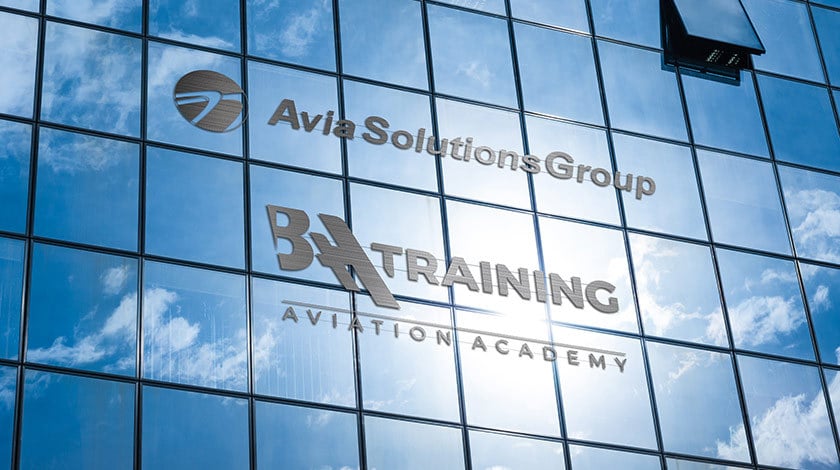Photo: BAA Training
Reading Time: 3 minutesOne of the leading independent aviation training companies – BAA Training – today has announced it will be getting financing for its global expansion provided by UK Export Finance (UKEF) and US Apple Bank for Savings. Two companies belonging to Avia Solutions Group (ASG) – BAA Training and ASG Asset Management – were involved in signing the historic agreements with the leading financial institutions.
The €31 million worth deal is one of the most significant agreements for the Lithuania-based company throughout its existence. It will facilitate the acquisition of 10 new simulators used for aviation training manufactured by L3Harris Technologies:
- Two Boeing 737 MAX full flight simulators (FFSs)
and
- Eight fixed base training devices (FTD Level 2) – Airbus A320 and Boeing 737 family.
The training simulators will be installed at BAA Training’s brand new facility in Barcelona – BAA Training Spain – the biggest simulator centre in Southern Europe.
The opportunity during the unprecedented times
The exceptionality of the financing agreements is that they come amid one of the most challenging times the aviation industry has ever faced. Therefore, they serve as evidence of trust in the future international growth of BAA Training.
Commenting on the large-scale deal, Jonas Janukenas, CEO at Avia Solutions Group, stated: “Signing such a financing agreement as this one during the global crisis affecting the entire aviation industry is out of the ordinary. It emphasizes the trust and confidence put into BAA Training that strengthens its position on the global stage.”
The Apple Bank for Savings financing arrangements were arranged by AirFinance. The loans are underwritten with a guarantee from UKEF, the UK’s Export Credit Agency (ECA), consolidating confidence in both BAA Training’s and Avia Solutions Group’s image in the global arena. This move will also ensure that the company’s strategic international development plans across Europe and Asia can be realized, giving it a competitive advantage over other businesses.
Vedder Price P.C., led by its Partner Dylan Potter, represented both UKEF and Apple Bank for Savings as outside counsel in the financing arrangements. Reed Smith LLP, led by partner Christopher Jackson, provided the majority of the legal support to BAA Training, which was also aided by advocate Ronaldas Kontautas and the team from Lithuania.
The agreements reinforce the expansion
“The concluded agreements allow for further successful implementation of BAA Training’s expansion plan in Europe and Asia. We view this achievement as especially important in our company’s history. This guarantee received from the international financial institutions is very significant as it directly positions BAA Training as a trustworthy global player in the aviation training industry. It also allows us to compete with the most prominent market players and seek even larger expansion in new markets,” says BAA Training’s CEO, Egle Vaitkeviciute.
Already providing quality service to corporate clients, such as Turkish Airlines, Transavia, LOT, ENAC, Bamboo Airways, VieJet Air, Avion Express, SmartLynx Airlines, and others, with the agreement in place, BAA Training will also be able to pursue strategic shift objectives. It will deviate from all FFS services to a complex mix of FFS and FTD devices, representing a flexible and cost-efficient training solution for the airlines recovering from the Covid-19 crisis.
Andrew Woolfson, Partner at AirFinance, “Simulator-based training represents an important part of the aviation industry. AirFinance and Apple Bank for Savings are delighted to support BAA Training, a company with a long-term vision of growth in this sector, in this, and hopefully many more future transactions.“
Cost-cutting opportunities for customers
The acquisition of new FFSs and FTDs will allow BAA Training to implement cost-trimming measures to accommodate the changing customer needs. BAA Training will introduce a customer-centric solution enabling Type Rating programs’ training components to be split between two types of simulation devices – full flight simulators (FFSs) and fixed base training devices (FTDs). Before that, the entire Type Rating program used to be completed solely on an FFS, which is typically more costly. The novelty will drastically reduce the program’s total cost without compromising the quality of the training.
Additionally, BAA Training Spain has recently accepted the delivery of a state-of-the-art Boeing 737 MAX FFS. The simulators of this type are particularly scarce worldwide, and therefore, for BAA Training, it is another critical gain.

